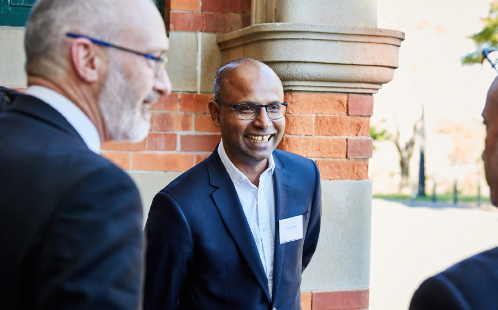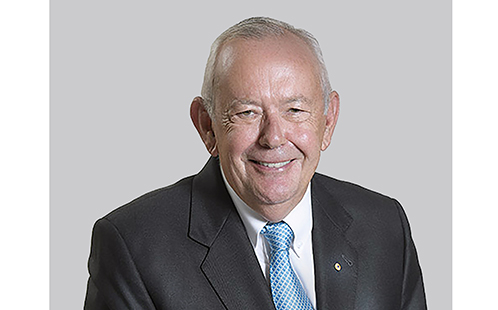Distinguished Professor Brajesh Singh named as winner of the Dorothy Jones Prize 2023

Western Sydney University’s Distinguished Professor Brajesh Singh from the Hawkesbury Institute for the Environment has been named as this year’s winner of the Dorothy Jones Prize for microbiology at the prestigious EMI lecture 2023, held at BMA House in London on 16 November.
Named after Dr Dorothy Jones, who served as President of Applied Microbiology International from 1989 to 1991 and was the third female President of the Society, the prize is part of the Applied Microbiology International Horizon Awards which celebrate the brightest minds in the field promoting individuals and research shaping the future of applied microbiology.
The prestigious scientific prize is awarded to a scientist who has used microbiology to make a significant contribution to our understanding of terrestrial life, rhizospheres and soil microbiomes, or to the preservation of our global ecosystem.
A global expert in the field of microbial functional ecology at Hawkesbury Institute for the Environment, Distinguished Professor Singh spent ten years honing his knowledge in Scotland before relocating to Australia and joining the Institute, becoming Director of the Global Centre for Land-Based Innovation in 2015.
By identifying the quantitative relationships between soil microbial diversity and ecosystem functions and exploring how these are impacted by natural and anthropogenic pressures his fundamental research provides solutions to global challenges including environmental degradation and food insecurity.
Findings from his research identifying the causal link between soil microbial and faunal soil biodiversity and key ecosystem functions and services have advanced crucial areas of ecosystem science and informed multiple policy decisions at regional, national, and global levels, including providing key recommendations for bilateral engagements in agribusiness and trade between Australia and both India and the European Union.
He has developed innovations to boost the efficacy of existing microbial products and provided new tools for manipulating soil and plant microbiomes for an array of industries across Australia and the World.
Distinguished Professor Singh is currently working with multiple government and inter-governmental bodies, including the Food and Agriculture Organisation (FAO) of the United Nations, to train farmers, consultants, and policy advisors in sustainable agriculture, and in the Sustainable Development Goals (SDGs). In addition, he works with the UN FAO’s Global Soil Partnership to boost the resilience of farming systems and ensure environmentally sustainable food security measures globally, and also advises the European Commission on enhancing productivity in the bioeconomy.
Distinguished Professor Singh is a Fellow of the Australian Academy of Science; the Soil Science Society of Australia; the Soil Science Society of America, the American Academy of Microbiology, and a Humboldt Research Awardee.
To find out more about AMI’s Grants and Awards programme, visit this webpage (opens in a new window).
ENDS
17 November 2023
Photo credit: Sally Tsoutas
Latest News

Opinion: What do we lose when our old suburbs disappear?
I live on the edge of Parramatta, Australia’s fastest-growing city.

Opinion: Most bees don’t die after stinging – and other surprising bee facts
Most of us have been stung by a bee and we know it’s not much fun. But maybe we also felt a tinge of regret, or vindication, knowing the offending bee will die. Right? Well, for 99.96% of bee species, that’s not actually the case.

Western Sydney University receives transformational donation to support LGBTIQA+ community
Western Sydney University has welcomed a philanthropic donation from The Brennan Lynch Foundation.